
In issuing its opinion barring Michelle MacDonald from running for the Minnesota Supreme Court, that body made an interesting note.
MacDonald has been an attorney at law since 1986 and practiced law in Minnesota from 1986 to 2021.
{Note, technically, the Minnesota Supreme Court recused itself and those justices chose replacements from the district court level}
In Minnesota, besides being of age and a resident, the Minnesota Constitution requires that all candidates to be a judge are, “learned in the law.”
Michelle has practiced law for nearly forty years, but somehow the opinion of the Minnesota Supreme Court is that she is not learned.
I first interviewed Michelle in August prior to oral arguments on this case.
She wanted to get on the ballot to run for Minnesota Supreme Court Justice, despite having a suspended law license. In oral arguments, one of the justices noted that Michelle had previously run before- in 2014 and 2018.
Somehow, this group of judges determined she is less learned now.
It all comes down to the way the Minnesota Supreme Court has interpreted the phrase from the Minnesota Constitution, “learned in the law.”
Particularly, since its 1972 decision in Re: Daly, the Minnesota Supreme Court has interpreted learned in the law as having an active law license.
Michelle argued that this interpretation was wrong, citing a 1940 case: in Boedigheimer, in which the Minnesota Supreme Court said neither it nor the legislature could add more conditions to qualifications to run for office than were already placed there by the Constitution.
This opinion twisted itself into a pretzel to ignore that 1940 case.
Despite holding that it was unconstitutional for the Legislature to require a municipal judge to have a Minnesota law license, Boedigheimer did not determine, as MacDonald argues, what the phrase “learned in the law,” as used in the Minnesota Constitution, means. Boedigheimer only ruled that the constitutional requirement to be “learned in the law” did not apply to municipal judges.
Nor does Boedigheimer answer the question as to whether “learned in the law” meant something distinct from the statutory requirement of being “duly admitted to practice as an attorney in the State.”
The Minnesota Constitution did not draw a distinction between municipal judges and other judges. It said any candidate running for judge had to be “learned in the law,” and yet, this opinion said that Boedigheimer did not apply to this case because Michelle was not running for a municipal judge.
Michelle also argued that a statute which required a law license to run for judge was unconstitutional because it placed an undue burden on potential candidates. The opinion did not address this question, so Michelle quickly filed for a rehearing on this issue. Here is part of that petition.
Michelle submitted this on Wednesday October 30, 2024, and the next day the Minnesota Supreme Court issued a decision.
No further explanation was provided. The constitutionality of the statute wasn’t addressed, and that’s just fine.
This opinion codifies the Minnesota bar as a veto over judicial nominees.
As I pointed out in September 2024, Minnesota judicial elections are a farce. The constitution provides that judges are elected, but that doesn’t generally happen.
Instead, judges- en masse- retire before their term is up. When that happens, the governor chooses a replacement. Governor Walz has chosen over 100 judges. Then, opponents rarely run against incumbent judges.
In effect, Governors choose judges, and those are lifetime appointments. The system has perverted the constitution.
Michelle is an anomaly, repeatedly challenging incumbents. She’s been punished for it.
The farce continues.
Michelle and I also went over the specious reasons her license is indefinitely suspended. It has everything to do with one child custody case: the Rucki case.
In September 2013, she was forced by the judge, David Knutson, to conduct part of a custody trial handcuffed to a wheelchair.

A year prior- in September 2012- that same judge barred both parents from seeing their children in a haphazard ruling after a telephonic conference attended by neither parent.
Michelle filed several complaints and then went on a radio show in 2018 in which she criticized Judge Knutson as well.
For that criticism, Michelle was suspended first for sixty days and now indefinitely.




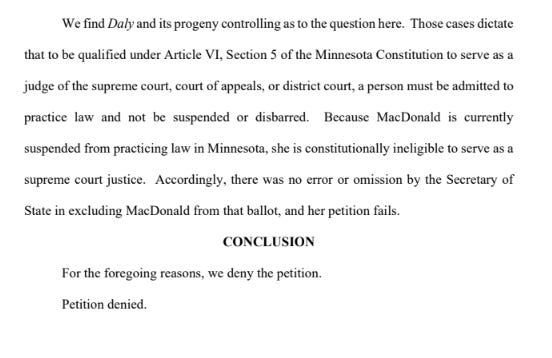
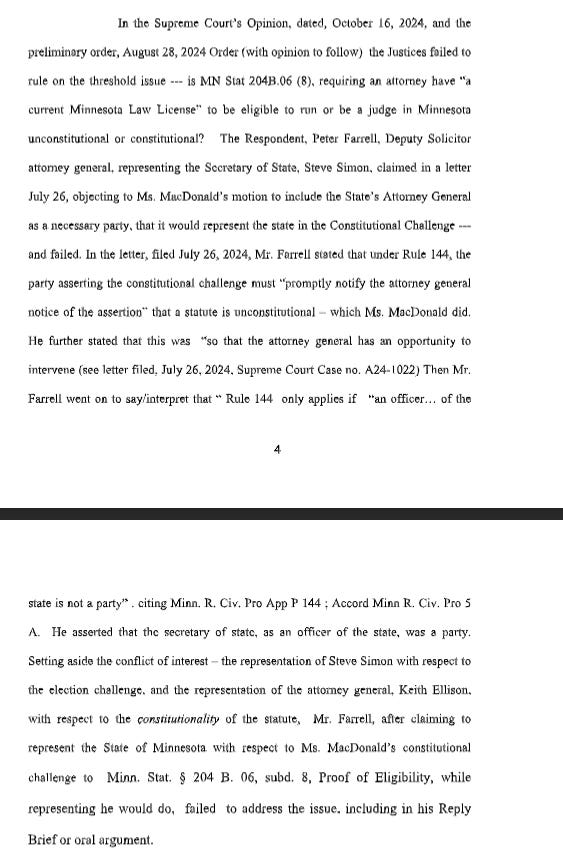
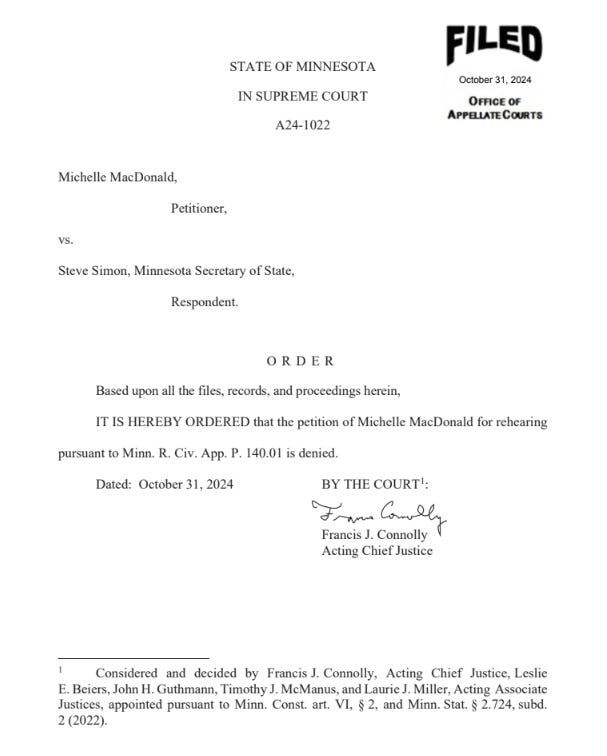
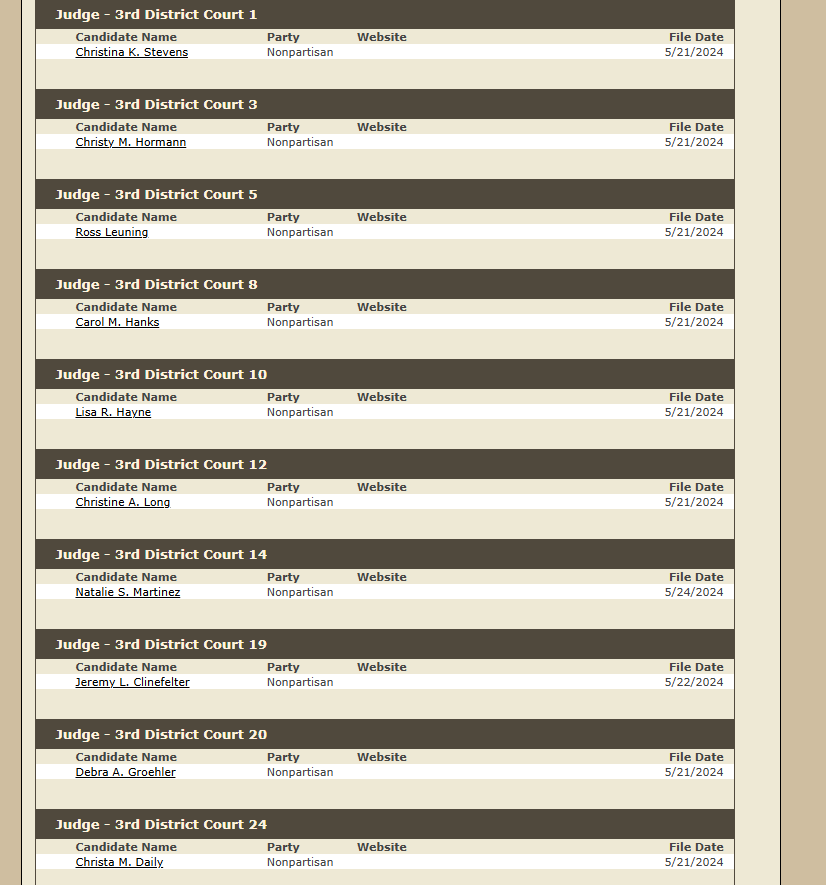



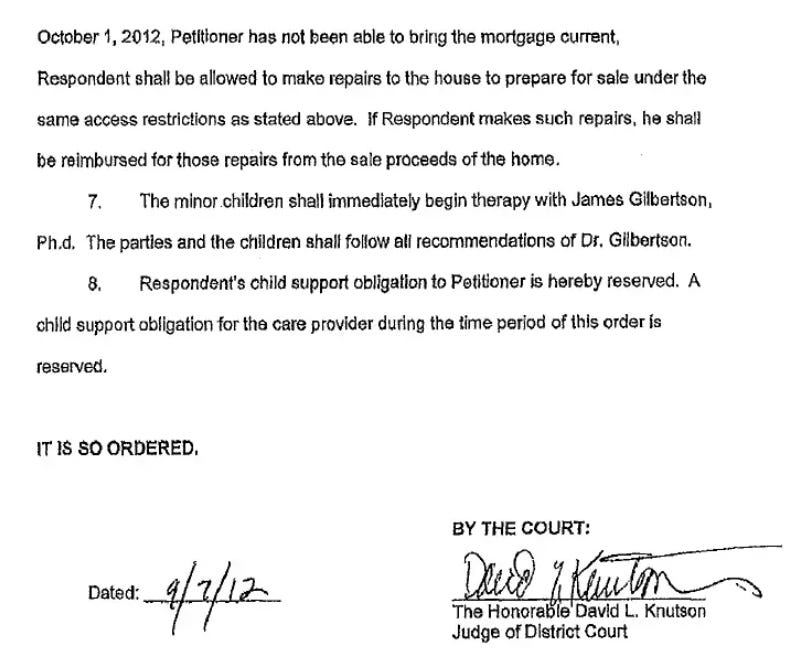


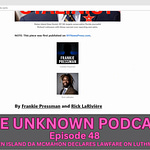







Share this post